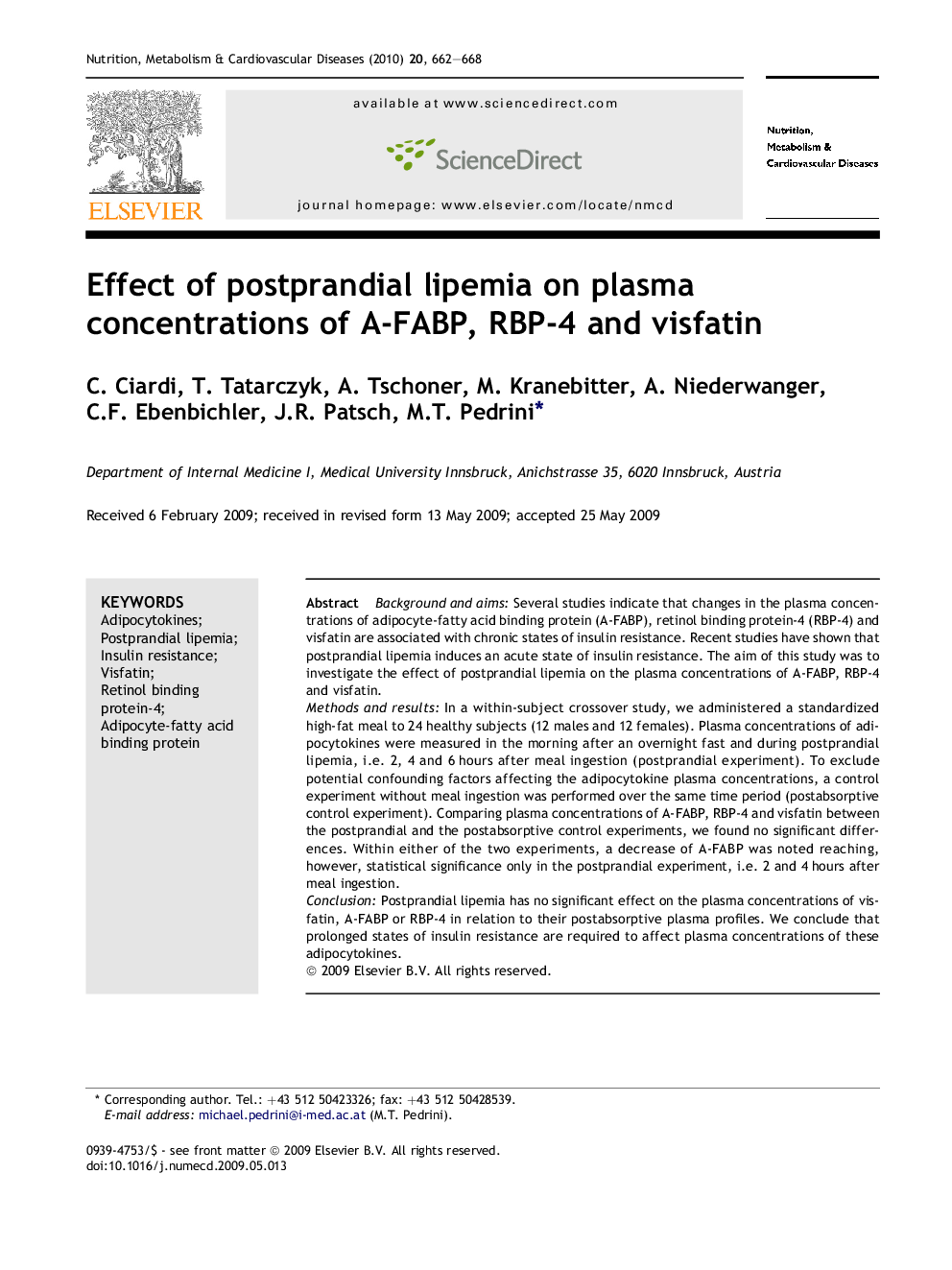| Article ID | Journal | Published Year | Pages | File Type |
|---|---|---|---|---|
| 3002537 | Nutrition, Metabolism and Cardiovascular Diseases | 2010 | 7 Pages |
Background and aimsSeveral studies indicate that changes in the plasma concentrations of adipocyte-fatty acid binding protein (A-FABP), retinol binding protein-4 (RBP-4) and visfatin are associated with chronic states of insulin resistance. Recent studies have shown that postprandial lipemia induces an acute state of insulin resistance. The aim of this study was to investigate the effect of postprandial lipemia on the plasma concentrations of A-FABP, RBP-4 and visfatin.Methods and resultsIn a within-subject crossover study, we administered a standardized high-fat meal to 24 healthy subjects (12 males and 12 females). Plasma concentrations of adipocytokines were measured in the morning after an overnight fast and during postprandial lipemia, i.e. 2, 4 and 6 hours after meal ingestion (postprandial experiment). To exclude potential confounding factors affecting the adipocytokine plasma concentrations, a control experiment without meal ingestion was performed over the same time period (postabsorptive control experiment). Comparing plasma concentrations of A-FABP, RBP-4 and visfatin between the postprandial and the postabsorptive control experiments, we found no significant differences. Within either of the two experiments, a decrease of A-FABP was noted reaching, however, statistical significance only in the postprandial experiment, i.e. 2 and 4 hours after meal ingestion.ConclusionPostprandial lipemia has no significant effect on the plasma concentrations of visfatin, A-FABP or RBP-4 in relation to their postabsorptive plasma profiles. We conclude that prolonged states of insulin resistance are required to affect plasma concentrations of these adipocytokines.
